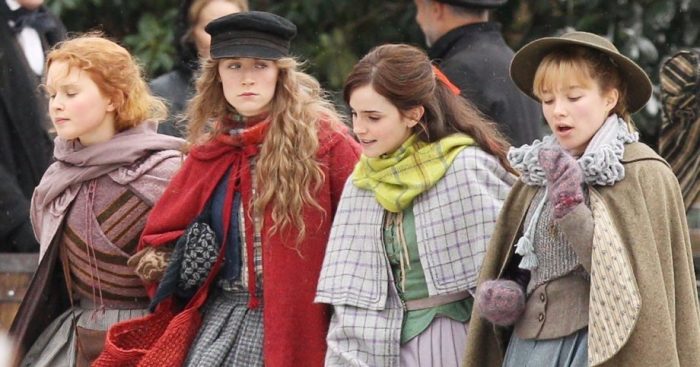Greta Gerwig on why 'Little Women' proves 'goodness and morality never go out of style'

CONCORD, N.H. — Greta Gerwig’s new film adaptation of Louisa May Alcott’s classic novel Little Women opens with Jo March, the heroine of the story, uncomfortably sitting across from an editor as he critiques her story.
After aggressively thumbing through pages, the editor rejects Jo’s story, informing her, “People want to be amused, not preached at. Morals don’t sell nowadays.”
For Gerwig, this line, taken directly from Alcott’s wholesome coming-of-age novel, is full of irony and reflects a sentiment still prevalent in the 21st century.
“I always thought it was kind of a really monumental moment that Louisa May Alcott is having with us, which is her publisher saying, ‘morals don't sell,’ and her book proves they very much do sell,” Gerwig told The Christian Post.
“It’s interesting because it's something that's not edgy, it's not outrageous. Because it never goes out of style, it seems totally fresh to make something that has goodness and morality and people treating each other well at the center of it,” she continued, adding that today, “everybody's just trying to shock each other into boredom.”
“It's very exciting to do something that's about people being good people, and it feels fresh because it's something that feels like maybe fewer movies have been trying,” Gerwig said.
Published in two parts in 1868 and 1869, Little Women follows the March sisters, Meg, Jo, Amy, and Beth, their friend Laurie, and their mother, affectionately called Marmee. The March sisters navigate love, friendship, ambition, and heartbreak in Civil War-era Massachusetts.
Opening in theaters Dec. 25, “Little Women” features Saoirse Ronan as Jo; Emma Watson as level-headed Meg; Florence Pugh as vain, selfish Amy; and Eliza Scanlen the delicate, gentle Beth. Their mother, Marmee, is played by award-winning actress Laura Dern, while Laurie is played Timothée Chalamet.
While Gerwig’s adaption of Little Women is loyal to its source material, she does remix the chronology, flashing back and forth from the sisters’ adolescence and young adulthood. Gerwig also blends the narrative of Jo March and Alcott, incorporating aspects of the author’s real life into the film.
“It was my book,” she said of how Alcott’s book influenced her own life. “It was the book that I loved more than any other book. Jo March was my favorite character. I wanted to be like her. I was like her. I think it was the fact that it reflected that these are the lives of girls and women and she made them into an epic story, which was so enthralling to me.”
“It made me want to be a writer and it made me want to make movies,” she added. “Getting the chance to tell this story on location with these actors was the privilege of my life.”

In both the book and the film, Alcott’s characters grapple with conforming to Victorian expectations of women: Jo wishes to become an independent writer; Amy a painter; and Meg a mother and wife. Gerwig emphasized that women of all ages and backgrounds can identify with the struggle of finding their place in society.
“There's such a diversity of women who've been attracted to this book, who've loved this book, from Simone de Beauvoir to Elena Ferrante, to J. K. Rowling to Gloria Steinem, to Patty Smith. There's all these revolutionary women who've loved this book,” she said. “There's something in it that gives your big soul a call to something.”
And Alcott’s novel has withstood the test of time, with eight film versions, a comic strip adaptation, and even an opera. Written in 1868, Little Women has never been out of print and has been translated into 52 languages.
[The fact that Little Women is] still in print is this spirit of what's possible for women,” Gerwig said. “The heart, the emotion of the book transcends time and place, and that kind of domestic epic of what it means to go through girlhood, go into the world and come home again is, that's forever.”
According to Gerwig, the enduring popularity of Little Women proves that morals do sell, and that the themes of love, loyalty, friendship, goodness, and morality will continue to resonate with readers for decades to come.
“That is the story of our lives,” Gerwig said. “I wanted to make a film that reflected the way that we're always walking with our younger selves and answering to the dreams that we had as girls, as adult women. And how do we structure that with our lives and family, and disappointments and triumphs, and the way that things unfold. That's what I was interested in telling.”




























